WHAT IS REALITY? The most fundamental question 💭 Official MIND UNLEASHED Blog on Steemit 🐣
“Reality is merely an illusion, albeit a very persistent one.”
– Albert Einstein
Welcome back to The @mindunleashed on @Steemit! 🐣
What is Reality?
The question is everywhere, all the time. Every action we take is completely based on what we consider as real. So what it real? Possibly the most common question but the hardest to answer and yet who we are, what we do and what we think is possible and what is not, are all based on our definition of reality.

Most people believe that reality is merely a projection of our senses. Science has endorsed this worldview for centuries and has agreed that if something is not perceivable with the five senses then it is not real. Ultraviolet and infrared light are not visible and we cannot touch, taste, smell or hear them, yet they exist. Similarly, when we look through an electron microscope, things no longer appear as things and are no longer perceivable. Does that mean matter is not real? Far from it. There are different frequencies of light and energy out there and our minds can only capture some of the channels (similarly to radios or TVs). Reality may be a part of our imagination. 💭
All matter and all objects are preceded by an idea. The computer you are using right now and the chair you are sitting on were all preceded with the ideas of a computer and a chair. Someone thought of those objects and created them. So if your computer and your chair are real, are the ideas of a computer and a chair real as well? Everyone knows first-hand that thoughts and emotions are real but scientists typically avoid talking about such things.
What is Matter?
The question what is reality? turned out to be more difficult to answer than expected. As a result, human society started questioning matter (the stuff around us that we all agree to be real) and moved the conversation to the laboratory where matter is collected and smashed into small pieces to see what its made of (with the infamous CERN hadron collider for instance). According to scientists, it seems easier to analyze matter than to analyze thoughts, emotions and subjective ideas.
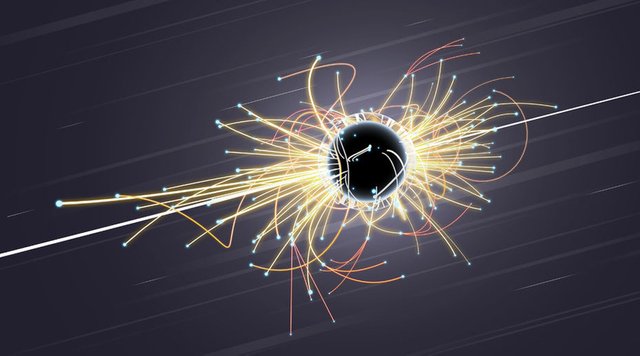
The Greek Philosopher Democritus Abdera created the first concept of the atom and claimed that "nothing exists except atoms and empty space; everything else is opinion." We are all told as kids that atoms are the building blocks of everything including you and your computer. With the advent of quantum mechanics, that neat concept of atom building blocks crumbled like a house of cards.
We used to think of atoms as solid blocks like Lego until we discovered atoms are 99.99% empty space. What's mind-unleashing is that we too are made of atoms and we too are 99.99% empty space. 💡
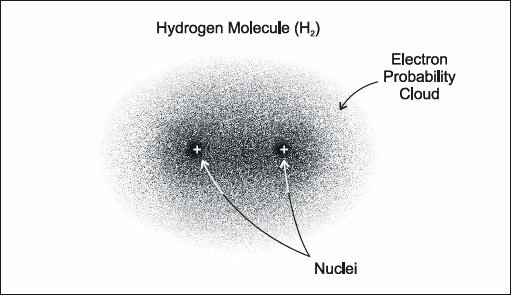
We must not confuse our scientific models of reality and reality itself. All we do in theoretical science is come up with theories that have fewer assumptions and that are increasingly less imperfect. The state-of-the-art consensus is that matter is essentially insubstantial. It seems that matter is more like a thought, or bits of information, just like a solid state hard disk holds bits of information. All matter is essentially information.
Science can give us models of reality and physical objects, but we still have to deal the subject: us, our consciousness. We are always the observer in science and we are always constrained to the little information that reaches our brain and allows us to see and perceive colors and smells. It may be possible that our entire human experience is nothing but an illusion, a five-sense prison that we cannot escape to see what's really out there.
Deeper Down the Rabbit Hole
A long time ago in ancient India, sages and gurus knew that that there is much more going on beyond our senses. Hindus and Buddhists have been teaching for millennia that the physical world is maya or illusion. They claim that there is a greater source of energy underlying the physical realm beyond our senses, which it is more fundamental and more real than matter itself (even though it is intangible).
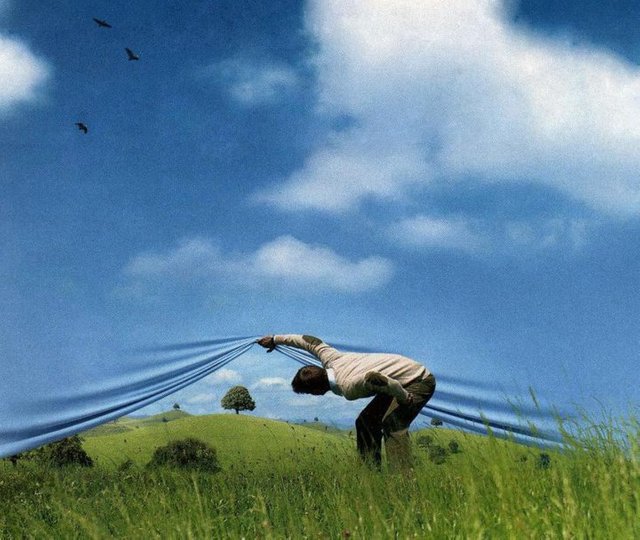
Spirituality has always claimed that there is a larger reality that is more fundamental than the material world, and that it has something to do with consciousness. Quantum physics is coming to the same conclusion that reality is governed by probability waves or information.
NASA astronaut Dr. Edgar Mitchell had a realization when he first saw Earth from space.
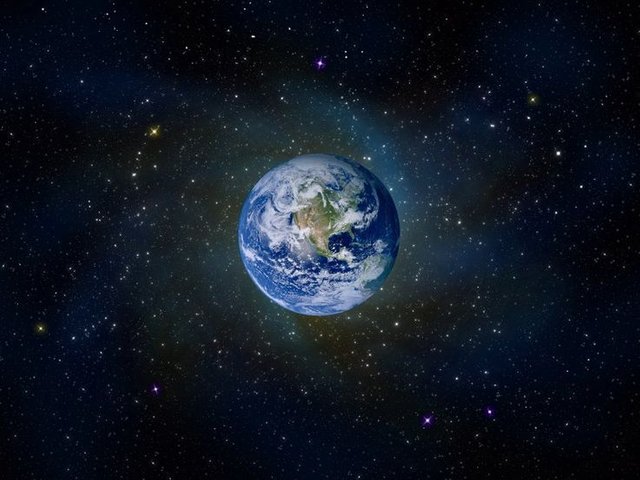
"In one moment, I realized that this universe is intelligent. This creative spirit within us is also within the planet and everything out there. It is all the same. Consciousness is fundamental and matter is a by-product of consciousness." - Dr. Edgar Mitchell
We used to think that our mind is somewhere in our brain. Scientists have dissected countless animal and human bodies to find the seat of the soul and yet it is nowhere to be found. That is because the mind is not in the body but rather the entire five-sense experience is in the mind. The body is also experienced in the mind. This is the shift in perspective that is currently causing a paradigm shift in our current worldview.
What's the Verdict?
We need to study the mind-body relationships. During the first renaissance, the Church (which was the form of government at the time) had banned science from all discussions about the mind and consciousness. Scientists were told to stick to physical objects. The mind-body split was created for political reasons rather than scientific ones. It is time to re-evaluate our assumptions about reality and investigate whether consciousness or information is the fundamental fabric of the universe or not.
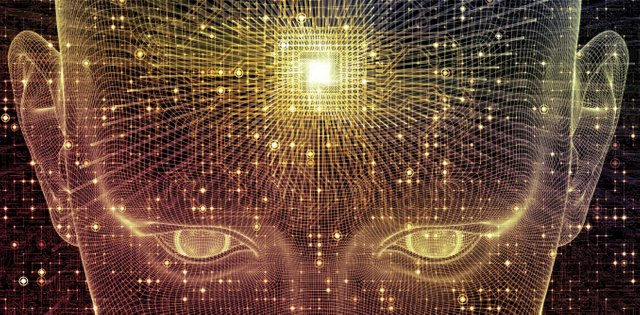
Will We Ever Know
Our studies only provide answers to the question we ask, which are limited to the capabilities of the human mind. Everything we perceive goes through our five-sense filters and our mind projects the image of the world in our consciousness. Reality is phenomena that occurs as a result of interactions between consciousness and what's really out there. We don't perceive reality, only our construction of it, which is built by our mind. We co-create reality, the physical world is a mind-construct. Space and time are also human concepts. What's really out there is forever hidden.
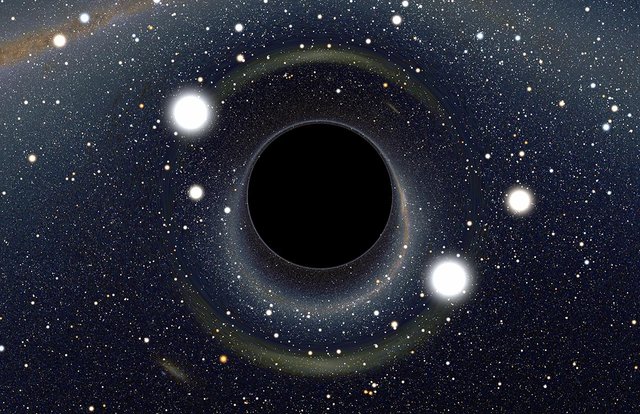
One Last Thought to Ponder:
What are dreams? If both dreams and reality are both primarily mind-constructs due to brain activities, then why would we think dreams are as real as the outside world? Is reality nothing but a dream that we are dreaming together? 💭
If you would like to read more about dreams or any other topics in the next post, please share your thoughts in the comments below. We'd love to hear what you think!
Break out of your shell.
Fly out of your cocoon.
Unleash your mind.
Thanks for reading!
@mindunleashed
🐣
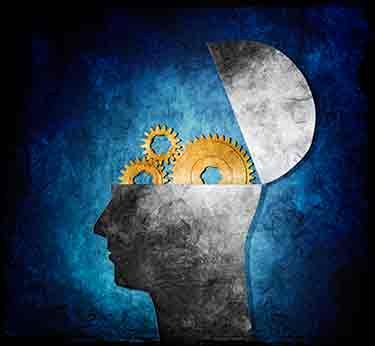
Notice: The information provided to you on this blog is solely for educational purposes. It is recommended to always remain skeptical, to not believe or disbelieve and to question everything including yourself.
References:
Hello there! I find it interesting now and then to entertain the kind of ideas you pose in this article. Although I agree that consciousness is an intriguing and poorly understood phenomenon, I wouldn't go so far as to put it at the center of the universe, which seems to be just a recycled version of an anthropocentric conception of the world.
I don't think ideas are born out of nothingness. We form ideas based on experiences, how we interpret them and how we connect them among each other. To propose that it's the other way around seems to be completely unsubstantiated. There is a subjective dimension to how we represent our experiences within our minds, but there are also many ways in which we can access objective features of reality. Is it an illusion that if I have an apple and you give me another apple, I will have two apples in the end? Is it an illusion that, each time I release a massive object midair, it falls down? Is my mind creating these regularities? If so, where is it creating them from? How is it that every single consciousness perceives these same regularities?
You've written a statement which I'm having trouble understanding, and I quote:
On which basis do you say that the conclusions of spiritual traditions and quantum mechanics are the same? There is no larger reality in the case of quantum mechanics, it's the same reality, only at a smaller scale and following a probabilistic causality. It is not metaphysical, it is as much as physical as the moons of Jupiter. Spiritual traditions, on the other hand, usually speak of transcendent realms and hypothetical dimensions separated from the physical world. These do not seem the same thing to me.
I would also like to remark that, while the idea of us having five classical senses remains very popular, the actual number of physical senses is somewhere around 10 and 20, depending on the details of the definition of sense. This is just a curiosity, not a criticism. You might like to check it out.
For me, the greatest indication of the existence of a physical objective reality instead of just a mental construct is the fact that almost all observers tend to agree in their sensory observations, even if each may represent these observations subjectively in their minds. I release a massive object midair and not a single person will tell me that it is going upwards to the sky. Everyone, with their sensory systems, agree on the behavior of that object. Are they incidentally creating the same illusion, or are they manifesting an objective feature of the world? The former seems too arbitrary to be plausible.
Interesting comment @jmorais! First thanks for reading the post. It is indeed hard to express the nuances of consciousness, reality and perception in words. I am also used to critique so thanks for sharing your comments. Do not believe or disbelieve what you read here, simply take it as information.
The main idea is that consciousness if the fundamental fabric of all experience. Matter is secondary but that does not mean that matter is not real or that it's an illusion (if you jump off a cliff, yes you will fall according to the physical laws that we have approximated), its just not the fundamental stuff our experience is made of. It is difficult to express in words as consciousness is purely subjective and this shift in perspective can only occur with deep introspection within our own conscisousness. All experiences are in the mind or consciousness, thus to understand it we must not only look without but also within.
I agree with your point. It is funny that we all have separate minds yet how is it that we are creating the same reality? Writing a theory with 7 billion observers can be quite dicey indeed. Perhaps our minds are singular. There are many scientists and spiritualists that made this claim based on first-hand experiences including Bohr and Schrodinger. It is all one. Connected non-locally underneath the table. Separateness is a mind-construct and things appear separate out there but it’s all connected in there.
When I referred to quantum mechanics I was simply hinting towards the measurement paradox, the observer effect, the double slit experiment and all its variations, quantum entanglement and the Einstein Podolsky Rosen paradox, Bell's theorem and more which I will write about in future posts... Quantum mechanics is the koan of our times perhaps suggesting that we must re-evaluate the assumptions we make in current theories. Paradoxes are signs that the current paradigm is starting to fail, which is a good thing. It means we are evolving and waking up to this reality. We have so much more to learn. We used to think Earth was flat not long ago. Perhaps some assumptions we make today will seem oblivious in the next decades.
I like this. Critical thinking. Thanks for dropping by and always share your thoughts. 💭
Thank you for your kind answer. You come across as someone who enjoys a debate and who can put their ideas in a sensible form. There are several aspects of your original post which I can agree with. My issue is precisely with this idea that
This kind of idealist philosophy could never really convince me. Would you say that when I'm not looking at the moon, it isn't actually there? Or are you trying to say that all my perceptions of the moon are merely a product of my mind and do not bear any relation to objective physical data which my senses are able to collect? What about my perception of another consciousness? Is that other consciousness just a construct inside mine? What is my consciousness to that other one, then? I'd like to see you elaborate clearly on this idea that consciousness is primary and matter is secondary, maybe in a next article.
Regarding your mention of quantum mechanics, the only real conceptual difficulty right now is probably the wavefunction collapse, which is related to the measurement problem. The observer effect is a misnomer for this phenomenon, because it is not the conscious observer which collapses the wavefunction, but the interaction between the quantum object and the measuring apparatus. The double-slit experiment is completely consistent with quantum mechanics and does not represent any paradox, and neither does quantum entanglement; those are strange phenomena from a classical point of view, but very well described within quantum mechanics, and consistent with the rest of its theoretical and phenomenological body. The EPR paradox has never been seen as a real paradox by many quantum physicists, most notably Niels Bohr who explained from the beginning that no contradiction arose between quantum entanglement and the speed limit at which information can travel. Bell's theorem is just an expression of the degree of non-local correlations between quantum objects, and does not represent a paradox. It is as paradoxical as the concept of an action at a distance when Newton proposed his theory of gravitation or the concept of a force field as introduced by Faraday in the context of electromagnetism.
Now, quantum mechanics is firmly based on careful and repeatable observations, while idealist ideas are a metaphysical conception which is either based on tautological reasoning or simply impossible to test. I don't think it is fair to compare the two. Nothing in quantum mechanics or in the empirical experience that is available to us supports the idea of matter as being subservient to consciousness.
Nevertheless, don't be discouraged from my skepticism. Put forward your best ideas in the clearest way that you can and with the soundest justification as you can. Then, this debate will be ever more interesting.
Stellar post! Keep em coming. This is officially my favorite blog 👌
Thanks @stellarinvestor! I look forward to reading your posts
My mind is successfully unleashed. Namaste!
Music to my ears!
Phenomenal post!! Thanks to blockchain tech, rest assured, your post will not be censored ⚡
Sure wont! haha. Following you!
wild... love the visuals <3
Thanks @mollywarhol. Stay unleashed! 🐣
@mindunleashed well said.. it is always difficult to express the nature of life using simple words. Enlightening!! 💡
Agreed! Sometimes I even ask myself what I am saying!
I would love to follow you... Nice blog..
Stay tuned. Stay skeptic. 👽